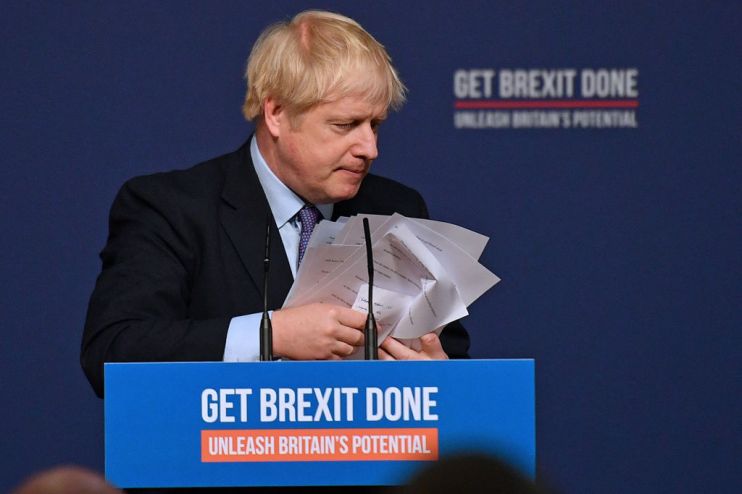This country has not had enough of experts

Michael Gove famously said that the “people in this country have had enough of experts”.
Of course, that’s not the full story — at the time, Gove was specifically targeting experts who, he claimed, kept getting things wrong.
But regardless, the “had enough of experts” quote went viral, and came to be viewed as something of a slogan for a post-truth era.
New research from pollsters Ipsos MORI shows that this isn’t the case. When it comes to making decisions about new government-led projects only 16 per cent of the public believe that politicians should be in sole control, whereas nearly half (48 per cent) think that politicians and technical experts should have equal control.
That’s a sensible view: politicians can provide direction, but experts can and should have a role in working out how to make things happen.
Unsurprisingly, evidence and expertise have not been bywords in the election campaign. Instead, we have had slogans such as “Get Brexit Done” and “It’s Time For Real Change” — with the Labour party also falling back on its 2017 message of “For The Many Not The Few”.
But a party cannot govern on slogans alone. Getting Brexit done will require technical expertise on trade law, economics and negotiation. Implementing an agenda of “real change” that works “for the many” will be impossible without, for example, experts to say at what level a minimum wage can be set without employers starting to cut back on their workforce.
What is stopping our MPs from using evidence properly in policymaking? When polled, only four per cent of them said it was down to a lack of good quality evidence to actually use.
The main reason that MPs gave for not using evidence was a lack of time. Well, we are all squeezed for time, so that’s a familiar excuse in every workplace.
More interestingly, the second most cited reason by over a third of them (36 per cent) was that the evidence conflicts with their party policy. This is known as “confirmation bias” — we pay more attention to evidence that confirms our positions, and try to ignore the rest.
Another major issue is skills. As one respondent put it: “Most MPs don’t know the difference between cause and correlation. They look for evidence to buttress their own opinion rather than to actually change their mind”. (This particular MP was at least honest enough to add “mind you, I am guilty of that too”.)
What can be done to improve the use of evidence in parliament? First, politicians need to bring more and diverse experts into the policy process. The way to avoid the “confirmation bias” that we all have is to listen to a variety of expert voices.
Second — and this is the other side of the coin — academics need to step up more boldly and offer up their expertise. A small minority are brilliant at this, but many do not stick their heads above the parapet.
The incentive system of universities rewards publishing in journals over engaging with the policy community. This needs rebalancing so young researchers know that their careers will benefit by working with government.
Finally, let’s improve the quality of data in government. We can make more use of so called “administrative” data sources such as benefit records or private sector “big data” to help inform departmental decisions.
And to improve the skills of our political class, we at the Royal Statistical Society have run basic statistics courses in Westminster, Holyrood and the Welsh Assembly. We would encourage more politicians to take part.
The country is not tired of experts, but it is tired of governments that don’t perform. Let’s hope that after the election we can turn our minds back to the hard work of actually governing, guided by data and evidence.
Main image credit: Getty